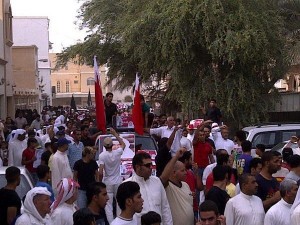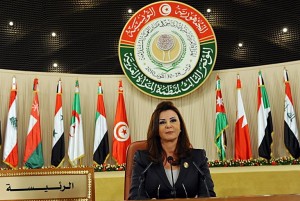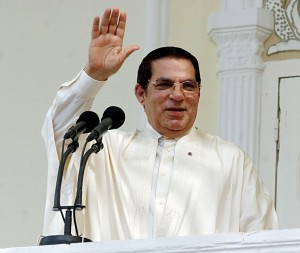What’s more important than Libya? At least four other countries.
The outcome of the unfinished revolution in Egypt will affect the prospects for democracy across the region. The outcome in Yemen, where Al Qaeda’s most dangerous branch is headquartered, is important to the struggle against terrorism. A change in Syria, Iran’s closest ally in the Arab world, would upend the balance of power on Israel’s northern borders.
And then there’s the Persian Gulf kingdom of Bahrain, where troops from Saudi Arabia and other Sunni Muslim countries have intervened to quell a Shiite Muslim uprising. It might seem odd to include a power struggle in a quasi-country of half a million citizens on a list of major strategic issues, but the crisis in Bahrain qualifies.
About two-thirds of Bahrainis are Shiite, but Sunni Muslims hold almost all the power. After Shiite groups staged increasingly violent demonstrations to demand more democracy, the government cracked down — and when the Bahraini police faltered, Saudi Arabia and other neighboring countries stepped in with troops.
Opposition groups say more than 400 activists have been arrested; the Bahraini government has refused to disclose the number of arrests. Human Rights Watch has charged that at least seven detainees have died in custody and that some may have been tortured.
Last week, the government announced that it was outlawing the largest — and most moderate — Shiite political party, but then backpedaled after an international outcry.
Why does all this matter? Because Bahrain isn’t the only Arab state on the gulf with a sizable Shiite population. Iraq has a Shiite majority and a Shiite-dominated government. Saudi Arabia is ruled by Sunnis, but it has a significant Shiite minority in its oil-rich eastern province. In all three countries, Shiite Muslims have historically been treated as an oppressed underclass — but now, watching other Arabs win more rights, they’re demanding equality too.
Bahrain matters, as well, because Saudi Arabia treats it as a virtual protectorate. The Saudi royal family doesn’t like to see Shiite Muslim demonstrators demand the head of any monarch; it’s too close to home.
Besides, in the view of many Sunnis, Bahrain’s Shiite protesters look like puppets in the hands of Iran, the Shiite Muslim behemoth across the gulf that has long tried to assert itself as the region’s dominant power.
The fear among many U.S. officials, though, is that the Sunni-Shiite unrest in Bahrain could turn into a self-fulfilling prophecy. If the Bahraini government stops negotiating with the moderate Shiite opposition, it risks radicalizing its own population — and driving some of them into the arms of Iran. Another outcome could be a conflict between Sunni and Shiite that would cross several borders.
In a worst-case scenario, warned Charles Freeman, a former U.S. ambassador to Saudi Arabia, a Sunni-Shiite split could prompt the pro-U.S. government in Iraq to ally itself with Iran, scrambling the basic foundation of U.S. security policy in the area, which aims to make Iraq a bulwark against Iran.
“The strategic stakes in Bahrain are higher than many outside the region appreciate,” Freeman said.
The Obama administration has been urging the Bahraini government to negotiate. Last week, the State Department’s top Middle East hand, Jeffrey Feltman, rushed to Bahrain to try to reopen talks between the government and the opposition.
But the administration has been notably gentle, because it wants the Bahraini royal family to stay in power and it doesn’t want to offend Saudi Arabia.
In a speech last week, Secretary of State Hillary Rodham Clinton said the U.S. “strongly condemned the abhorrent violence committed against peaceful protesters by the Syrian government.” But on Bahrain, she merely warned that “security alone cannot resolve the challenges.” (“We know that a one-size-fits-all approach doesn’t make sense,” she explained.)
Another official said the administration is promoting reform throughout the Arab world, but it’s also reassuring rulers in places such as Saudi Arabia and Bahrain that it won’t insist on immediate change. “It doesn’t have to come fast,” he said.
Defense Secretary Robert M. Gates and national security advisor Tom Donilon visited Saudi Arabia this month to try to patch up the U.S. relationship with King Abdullah, who was furious when Obama backed the overthrow of Egyptian President Hosni Mubarak. Both U.S. and Saudi officials said the meetings helped repair the U.S.-Saudi alliance on issues such as Iran. But they said there was no sign of any Saudi moderation on the issue of Bahrain, which the Saudis consider their backyard.
The gulf has long been a central focus of U.S. foreign policy, both because it’s the source of much of the world’s oil and because it’s the frontier between the pro-American Arab monarchies and anti-American Iran.
That’s why the U.S. has a naval fleet there — headquartered, as it happens, in Bahrain.
Now Bahrain is at risk. Hard-liners have opted to use an iron fist, to see whether repression can restore stability; reform, they say, can come later. If they turn out to be wrong, the consequences could be dire.
By Doyle McManus






















